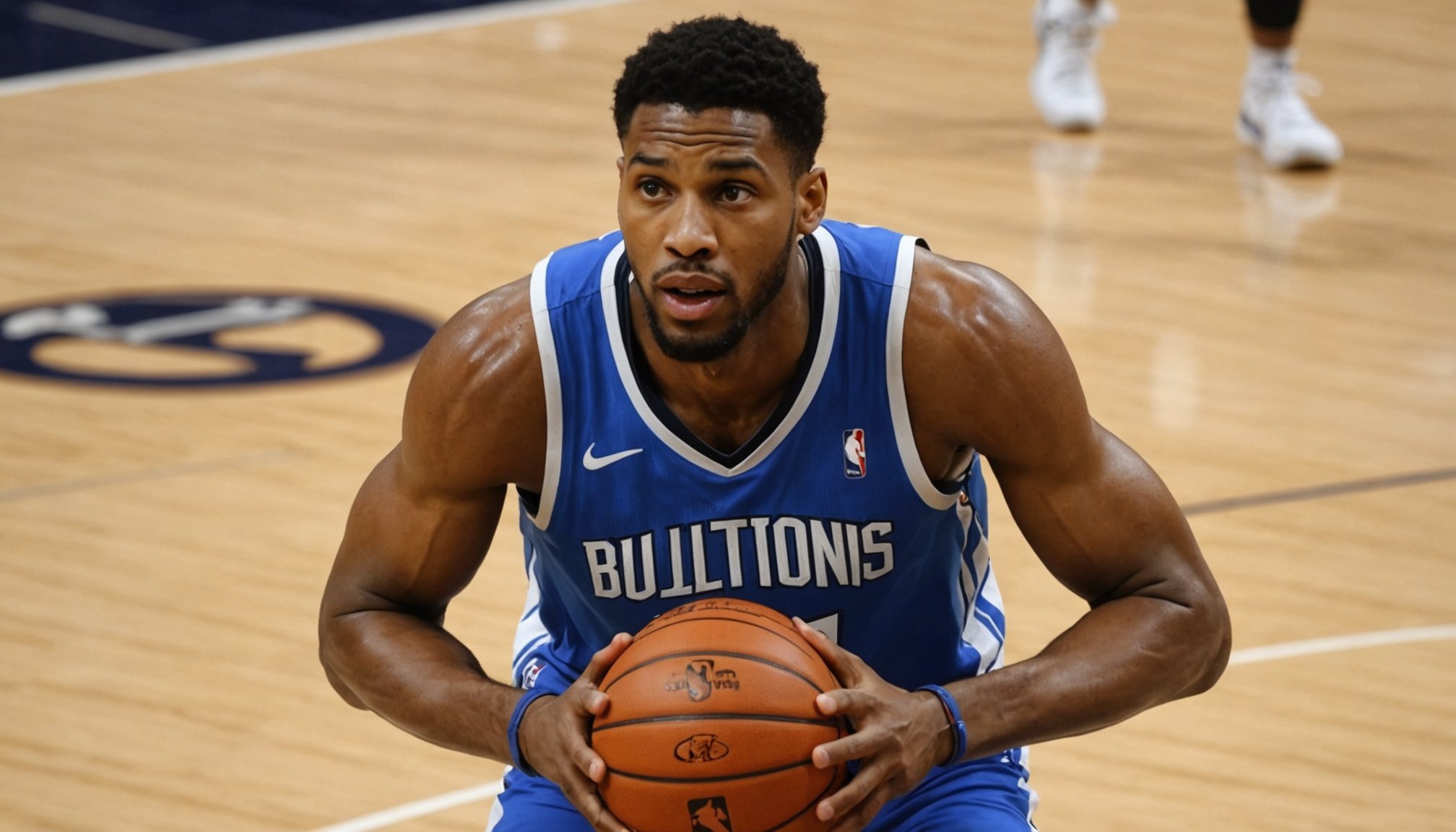Embarking on a career in professional basketball is a dream for many aspiring athletes. The allure of NBA fame, the thrill of playing for a coveted team, and the prospect of financial success draw countless young players into the world of sports. However, the financial implications of such a career extend beyond the initial excitement. In this article, we will explore the various dimensions of financial management, earnings potential, and the long-term fiscal responsibilities that come with being a professional basketball player.
The NBA is not just a league of competition; it is a multi-billion dollar industry where players can earn substantial incomes. Yet, the path to financial stability is riddled with challenges, including the impact of contracts, salary management, and the need for prudent financial planning. Understanding these elements can empower you as a future athlete to make informed decisions that secure your financial future, both on and off the court.
In parallel : How can basketball players effectively market themselves for sponsorships?
Earnings Potential in the NBA
The earning potential for professional basketball players in the NBA is often the first aspect that comes to mind for those considering a career in this league. Contracts can vary widely depending on factors such as a player’s experience, talent level, and marketability. Starting salaries for rookie players can range significantly, but they often begin in the hundreds of thousands, with many top picks earning several million dollars in their first year.
As players progress through their career, the financial rewards can grow exponentially. Veteran players who have proven themselves can secure contracts worth tens of millions annually. The salary cap system in the NBA ensures that teams can pay their top players competitive wages, but it also means that rookies and less experienced players must negotiate their contracts wisely to ensure they are compensated fairly.
Topic to read : What are the essential skills every basketball player should master to succeed?
Moreover, endorsements play a crucial role in the financial landscape for many athletes. The most successful players can earn as much, if not more, from endorsements than their actual playing contracts. Major brands seek to partner with star players to leverage their popularity, leading to lucrative deals that can significantly boost an athlete’s overall income. This intersection of team contracts and personal brand development is vital for maximizing financial success in the league.
Therefore, aspiring basketball players must understand not just the numbers associated with their contracts, but also how to cultivate their personal brand to attract endorsement opportunities. This combination of sports performance and personal marketing can pave the way toward substantial financial gains throughout their career.
Financial Management: The Key to Longevity
While the potential earnings in professional basketball can be high, effective financial management is essential for sustaining this wealth over time. Many athletes face the common challenge of managing large sums of money, especially when they transition from their playing days into retirement.
One of the first steps in financial management involves understanding contracts and their implications. Players need to be savvy when negotiating contracts, ensuring they maximize their earnings while also considering the long-term consequences of their financial decisions. It is advisable to work with financial advisors who specialize in sports to help navigate the complexities of income, taxes, and investments.
Moreover, players should consider the costs associated with their careers. Training, travel, and personal expenses can quickly add up. Financial literacy becomes crucial in managing these expenses, as players must differentiate between necessary investments in their careers versus lifestyle spending that could jeopardize their financial future.
Another significant aspect of financial management is planning for life after basketball. The average career of an NBA player is relatively short, often spanning only a few years. Many players retire without adequate preparation for their post-basketball career. This reality highlights the importance of investing wisely during their playing years. Players should focus on building a diversified portfolio that includes retirement accounts, real estate, and other investment vehicles that can provide income long after they leave the court.
In conclusion, successful financial management is key to ensuring that the wealth earned during a professional basketball career is preserved and enhanced for the future.
The Impact of Injuries on Financial Stability
Injuries are an unfortunate reality in professional sports, including basketball. The impact of an injury can severely affect a player’s career trajectory and financial stability. When players sustain injuries, they often face the dual challenge of physical rehabilitation and financial uncertainty.
For many athletes, injuries can lead to lost wages. Depending on the severity of the injury, a player may miss several games, or in more extreme cases, entire seasons. In the NBA, this could mean millions of dollars in lost salary and potential endorsement deals during their recovery period. Understanding the nuances of their contracts can help players mitigate these risks. Some contracts include provisions for injury protection, ensuring that guaranteed money remains intact even if the player cannot perform.
In addition to the immediate financial implications, injuries can have long-term effects on a player’s earning potential. A successful season can lead to a better contract negotiation the following year. A significant injury, however, may result in lower offers or, in some cases, the inability to sign with a team at all. This reality underscores the importance of having a robust support system that includes medical professionals, trainers, and financial advisors who can help navigate the repercussions of injuries.
Moreover, the psychological toll of injuries can also impact a player’s performance and marketability. Maintaining a strong mental health routine is crucial for players to ensure they can return to peak performance and continue to attract endorsement opportunities even after experiencing setbacks. Being proactive about mental and physical health can help sustain a more stable financial future, irrespective of the challenges faced during their career.
Navigating Life After Basketball
Transitioning from a professional basketball career to life after the NBA can be one of the most daunting challenges for many players. The sudden shift from the spotlight to civilian life can leave many feeling lost, both personally and financially. Understanding how to navigate this phase is crucial for maintaining financial stability.
One important factor in this transition is education. Many successful players pursue further education or training during their playing years, setting themselves up for future careers once they retire. This could involve enrolling in college courses, obtaining certifications, or even starting businesses while still active in the league. Such proactive steps can ease the transition and provide alternative income streams.
Networking is another critical aspect of life after basketball. Players should cultivate relationships with professionals in areas of interest, whether that be coaching, sports management, or business. These connections can prove invaluable, providing opportunities for mentorship and potential employment. Establishing a robust professional network ensures that players have pathways to explore after their time on the court ends.
Financial planning cannot be overlooked during this transition. Players must consider how to use their earnings wisely to sustain their lifestyle and prepare for the future. Engaging with financial advisors who understand the unique challenges faced by athletes can help them formulate a sound financial strategy that includes budgeting, investments, and retirement planning.
Ultimately, navigating life after basketball requires a multifaceted approach, combining education, networking, and financial acumen. By taking proactive measures during their career, players can set themselves up for success long after they retire from professional basketball.
A career in professional basketball offers significant financial opportunities, but it also presents unique challenges and responsibilities. Understanding the intricacies of contracts, effective financial management, the potential impacts of injuries, and navigating life after the NBA is essential for every aspiring player.
As you pursue your dreams of becoming a professional athlete, remember the importance of being proactive about your financial health. Engage with experts, educate yourself on financial matters, and develop a long-term strategy to ensure your earnings can support your lifestyle, both during and after your playing days.
By addressing these financial implications head-on, you can enjoy a rewarding career in basketball while securing your financial future. Whether your journey leads you to the NBA or another professional league, the principles of effective financial management will remain critical to achieving long-term success.











